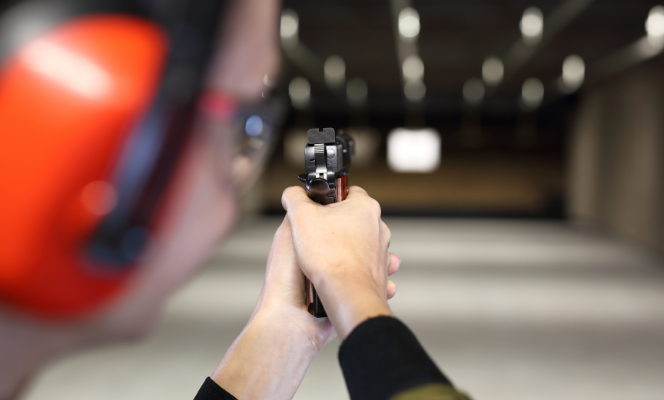On November 7, 2023, the United States Supreme Court heard oral arguments in the case of United States v. Rahimi. In this matter they are considering whether the government can deny access to guns for people who are the subject of a domestic violence protection order.
As everyone knows, the Second Amendment to the United States Constitution has been interpreted to allow people to own and carry firearms. The Second Amendment states “A well regulated militia, being necessary to the security of a free state, the right of the people to keep and bear arms, shall not be infringed.” However, in the 2008 case District of Columbia v. Heller, the Supreme Court held that the “Second Amendment protects an individual right to possess a firearm unconnected with service in a militia, and to use that arm for traditionally lawful purposes, such as self-defense within the home.” Stated another way, the words “A well regulated militia, being necessary to the security of a free state”, has been deemed as irrelevant to this question.
In 2022, the US Supreme Court ruled in New York State Rifle v Bruen that New York States requirement for a CCW[1], based on a demonstrated need, was unconstitutional. The case dealt with the constitutionality of a New York law that restricted the right to carry a concealed handgun in public. The Supreme Court ruled that the law was unconstitutional because it violated the Second Amendment right to bear arms. As a result of this ruling, California became a “shall issue” state,[2] meaning that if you meet the criteria (age, no felonies on your record, etc.,) sheriff cannot deny your request for a CCW– even if you don’t have a particular reason to want to carry a gun, beyond general self-defense.
As noted, there have always been some exceptions to this rule of being able to legally own a firearm, including being the subject of a domestic violence restraining order. In my experience, it is not difficult to obtain a temporary restraining order. If someone makes an allegation of domestic violence, even if there is no allegation of the use of a firearm, the court, without a hearing, may issues a TRO – Temporary Restraining Order. Currently in California, that would make it illegal to possess a firearm until the hearing and a ruling by the Judge on whether or not to issues the restraining order.
A restraining order does NOT require someone to be convicted of a crime and also does not allow for a jury of your peers to rule on this issue. On the other hand, it is 500% more likely that a women will be killed when their abuser has access to a gun.
How did we get to this place? The issue is the result of what is known as the “originalist standard.” Originalism is a jurisprudential philosophy created and embraced by the conservative legal movement which dictates that the Constitution must be understood today as the public supposedly understood it when it was enacted.
When I went to law school, I was taught that the Constitution was a living, breathing document that could adjust to the changes in society. This was the beauty of this document. That it applied in the 20th Century just as easily as the 18th Century. That it laid out principals that we could follow. In the context of the Second Amendment, it would allow us to consider the types and nature of the weapons now available vs the rules that were set in 1791 when all of the guns were one shot muskets.
But, as the Court has become more conservative, the prevailing thought by the Justices (and therefore the law of the country) is that we are limited to rules as they were understood when our great, great, great, great grandfathers were the only people who could vote – provided they were white landowners. It is ironic that the primary driver of this movement is Clarence Thomas. As a person of African decent, he not only would not be allowed to vote in 1791 but may have found himself on the other side of the law for being married to a white woman and might have been considered “property”.
I am a gun owner and have been for many years. And over the years I have seen ex-girlfriends and spouses use restraining orders, not for protection, but to punish their boyfriend for some perceived wrong – by forcing them to give up their guns. I have also seen situations where the concern was very real and justified.
In my view, it would make sense to not have a blanket rule regarding restraining orders and TRO’s but that a judge would have to issue a specific order that, in that particular situation, the person should be precluded from possessing a firearm.
I don’t think that that is going to happen, and the Supreme Court is very likely to take that option off the table.
[1] CCW stands for “Concealed Carry Weapon,” which refers to the practice of carrying a firearm in a concealed manner on one’s person or in a vehicle. The laws and regulations surrounding CCW permits vary by state and country, so it is important to research and understand the specific laws in your area before carrying a concealed weapon. Additionally, proper training and education on firearm safety and handling is crucial for anyone considering carrying a concealed weapon.
[2] See https://www.usconcealedcarry.com/blog/how-to-get-a-concealed-carry-permit-in-california/ for more information on how to obtain a CCW in California.

